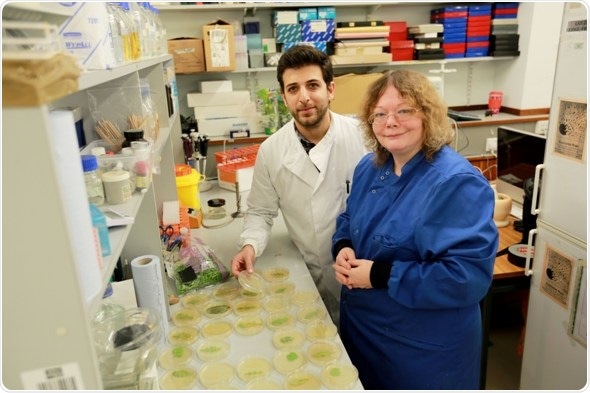Dec 22 2016
University of Leicester researchers examine serious food infection risks in the popular festive turkey lunch and its leftovers
Many households around the world will be celebrating Christmas day with a turkey lunch – but the festive meal can be a hidden source of serious food infections unless precautions are taken, according to researchers from the University of Leicester.

Dr Primrose Freestone and PhD student Giannis Koukkidis from the University of Leicester Department of Infection, Immunity and Inflammation have provided a list of guidelines for avoiding food poisoning and the consequent stomach upsets this Christmas.
Their top tips are:
- Handwashing and good food preparation hygiene is key to avoiding food poisoning. Everyone’s hands are colonised by thousands of bacteria, fungi and viruses, so washing hands, particularly when handling raw food, is key
- Clean work surfaces are of paramount importance, and it is advised that antimicrobial sprays are used and that all preparation utensils are washed in hot water
- Store perishable foods as directed on the manufacturers’ label and in your fridge keep separate cooked and uncooked foods
- If you buy a frozen turkey, give plenty of time to defrost it – but do not wash your Christmas chicken or turkey. The Campylobacter bacteria that might be present and which potentially could give you food poisoning will be splashed over you and your kitchen. If you forget, and the splashback happens, mop up with kitchen towel and spray the areas with antibacterial spray
- In terms of preparing the turkey, consider stuffing only the neck end, particularly if it is a very large turkey. A heavily stuffed poultry body cavity (where most of the Campylobacter or other food poisoning bacteria will be) might not completely cook through
- In terms of roasting the turkey, cook until the juices run clear of any blood, and, if you have a meat thermometer, the temperature reaches 74oC in the thickest part of the turkey (the meat between the thigh and breast)
- It is a good idea to wash fresh produce thoroughly before eating. Also, what is on the sprout or potato you peeled will be on your hands, so after vegetable or fruit preparation wash your hands as carefully as you would do after handling raw meat or fish.
- If you have lots of turkey or other meat leftovers, you should cover them as soon as possible after your meal, and try to ensure that they are in your fridge of freezer in no more than 2 hours.
- Remember to thaw thoroughly frozen leftovers then reheat until steaming hot to kill off any bacteria or fungi that might have been introduced during the leftover portioning
The researchers suggest that following these guidelines could help to mitigate the likelihood of food poisoning during Christmas, hopefully ensuring that New Year isn’t spent cooped up in bed recovering.